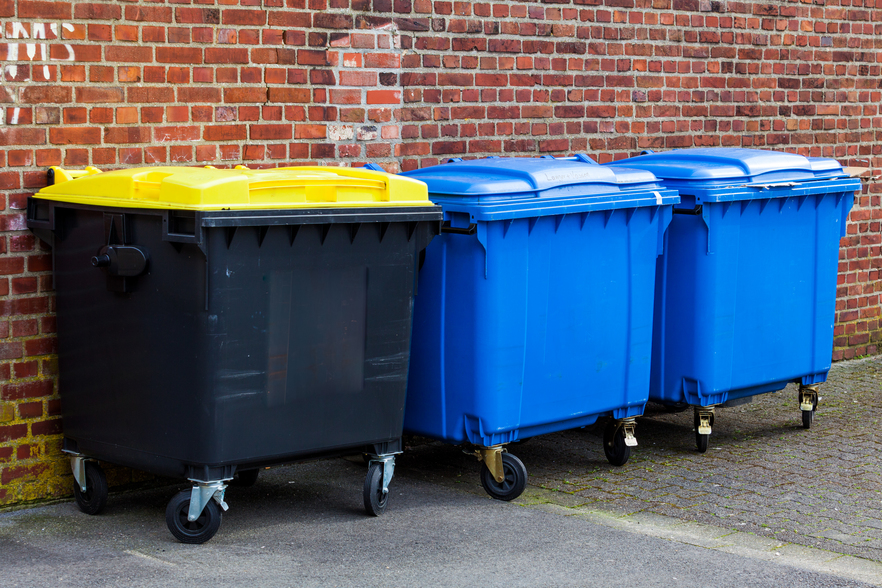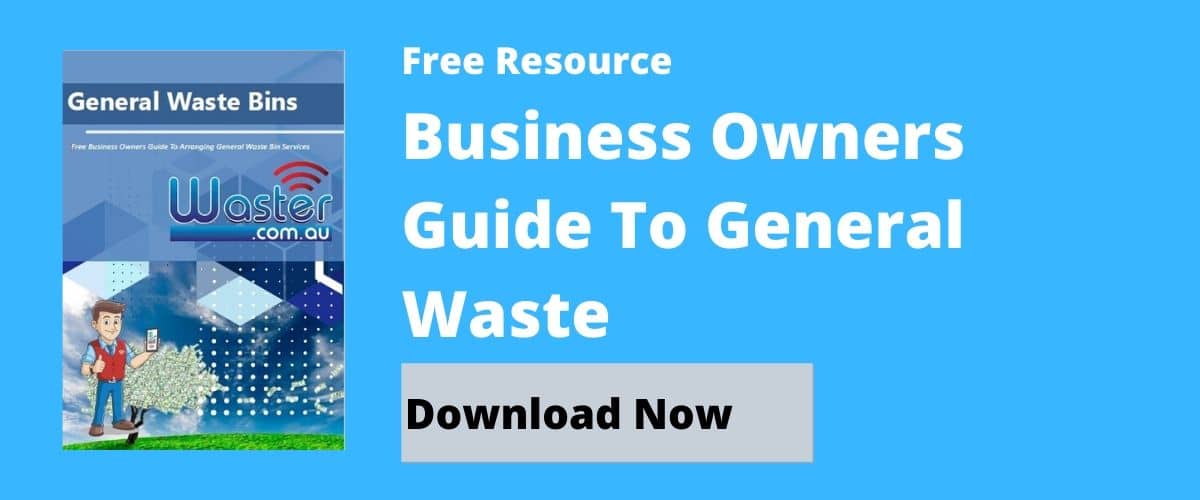
Waste Handling: Best Practices 🗑️
Waste Handling 🗑️: Spiderman once stated, “With great power comes great responsibility”. I loved that phrase and even associated it with waste management. After all, I think waste management workers out there have the most honourable jobs there is.
Additionally, in my opinion, being in the waste management industry is one of the most rewarding careers. Not only is it cool to help the environment, but also because it disciplines you. That is right; waste management requires discipline and a keen following of the procedures. One tiny, wrong move and you can risk both your own and others within the vicinity’s health and safety.
So, what are the best practices for handling waste? That is going to be discussed in the following sections. Read on to learn more.
>Download Now: Free PDF Business Owners Guide To General Waste Bin Services
A bit about Waster
Before I discuss the safe handling of waste, let me share with you more information about Waster.
We here at Waster provide you with innovative solutions for your and your business’s waste management and recycling needs. Furthermore, we provide flexible, 30-day contracts instead of the typical lock-in contracts, which proves to be better.
Click on the blue button to learn more.
READ: Private Garbage Company 🚛
All about waste handling and disposal procedure
As I have stated above, one tiny, wrong move in dealing with rubbish and you risk compromising both the people and the environment. As one might know, collecting trash is not a black-and-white course of action. Some businesses, for example, use hazardous materials that become waste at the end. And, when the handler mismanages the waste, it compromises the health of the handler and its surroundings. That is why it is a must to abide by a set of procedures in handling waste.
As you may all know, many hazardous waste materials exist. Examples include any type of e-waste, aerosol cans, some types of light bulbs like CFLs and fluorescent ones, kitchenware, and many others. It is very important that these types of waste, among others, are properly administered.
Additionally, dangerous waste is not limited to hazardous ones. Sharp and heavy materials should also be considered when collecting waste.
So, how do you properly handle waste? Let me discuss this in the following section.
How to handle rubbish properly
For the proper handling of waste, a thorough measuring of the risks involved must first be implemented. Are the waste being handled hazardous or not? If so, how should collectors handle hazardous waste? For handling hazardous waste, in particular, there is the Hazardous Waste Management and Handling Rules 1989. You can read all about it here for a complete guide on handling hazardous waste. That is the first assessment a handler must do.
Does the law have steps a handler must first follow before the collection? More often than not, it always does. In other words, the handler must first categorise the waste.
Next, after the risk assessment and categorising stage comes the packaging of the materials. Depending on the waste type after the assessment, the handler can then store it in an appropriate container that should be labelled properly. But, if the waste is not hazardous, you can choose not to label it as hazardous materials.
Remember, hazardous materials cannot be collected carelessly. After that comes the transporting and disposal stage. They then take it to the most appropriate facility for processing – i.e., recyclables go into recycling facilities; general waste goes into a landfill; and, hazardous waste goes into a special facility, etc.
As with the other stages, utmost care is required in handling hazardous waste. As a waste management company, they must train all their workers to handle hazardous and non-hazardous waste alike. They should comply with the rules and regulations.
As a business, how can we help collectors manage waste?
You should bag your waste when appropriate
Some materials, when broken, may leak toxic chemicals stored in them. So, it is best to keep them in a sturdy container before the transportation period to prevent hazardous materials from leaking.
Do not put hazardous materials in the rubbish bin
It will contaminate landfills if you do so. As a result, the dangerous chemical will leach into the ground or into a body of water, therefore contaminating it. Additionally, it will put the garbage collector/handler at risk. They should be placed in an appropriate bin that will be then sent to a special landfill designed to contain them. Examples of these include medical bins for medical waste and the asbestos bin for asbestos waste, etc.
Never overfill your bin
This practice will harm not only your premises but also the other establishments around you and the environment. First of all, overfilling your bin will attract critters like cockroaches, rats, flies, and other animals. They can spread bacteria and germs that can cause diseases. Additionally, they may cause accidents.
That is because they may contain heavy waste materials that can fall and injure people if left unchecked. For example, some people may run or jog past your kerbside in the morning. And, if the trash accidentally falls on them due to overfilling it, they will get injured. Overfilled or heavy bins can break under an intense amount of pressure due to their weight.
So, plan your desired pickup schedule with your handlers in advance. Calculate the period wherein you fill your bin so that you can decide on the pickup date.
Conclusion: waste handling
To prevent accidents, contaminating the environment, risking the health and safety of people, and so many more, both businesses and waste management companies must work together to get rid of the waste. Both parties should handle waste, especially the hazardous (solid or liquid) ones, with utmost care.
Solid and liquid waste handling should be done carefully; store them in a sturdy, leak-free container; label them correctly; and, dispose of them properly by following regulations.
I hope you learned the meaning and practices of waste handling by reading this. And, watch this informative video to learn more:

Waster: things you need to know
If you’re looking for recycling bins, check our waste recycling shop and find the best deals in terms of pricing and services.
Also, please call 1300 WASTER (1300 927 837), or email us at enquiries@waster.com.au if you have any further questions.
Leave a Reply Cancel reply

Product categories
Most Popular Posts
-
Commercial Waste Management Services: Reduce Waste Collection Costs! 🚍
-
Medical Waste Disposal: Everything You Need To Find Out In 2024! 💉
-
Rubbish Removal Sydney 2024: Better Bin Collections For Business ✅
-
Clinical Waste Disposal 2024: What To Know About Business Clinical Waste ⚕️
-
Secure Document Destruction 2024: All About Security Bins Shredding 🔒
-
Free Cardboard Recycling 2024: Can I Get Free Cardboard Collection? 📦
-
Confidential Paper Disposal Bins 2024: What You Need To Know About Shredding! 🔒
-
Recycling Bins Australia 2024: Recycling Can Boost Your Profits! ♲
-
Commercial Wheelie Bin Collection: What Businesses Need To Know In 2024 🗑️
-
Commingled Recycling 2024: Why Commingled Bin Is Key To Recycling 🍾













